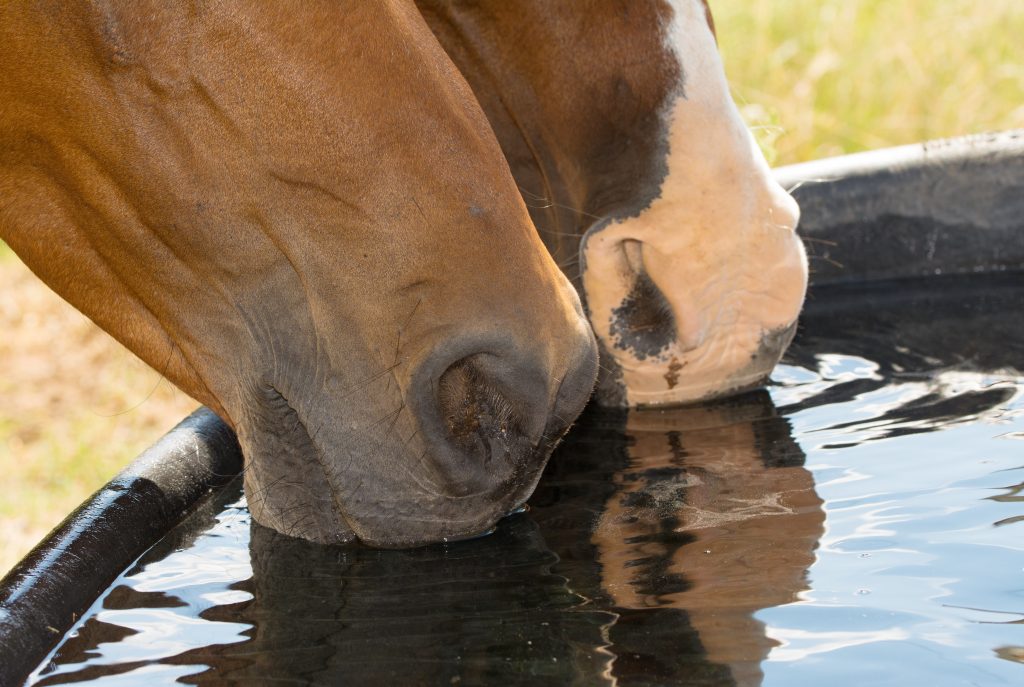Riding your horse during the summer is a tricky situation to handle. Yes, you want him to get hot and sweat just like you do during your ride, but it’s important for you to be able to differentiate between “hot” and “too hot”. Horses can become overheated very quickly which can lead to serious problems like heat stroke. Use these guidelines to monitor your horse this summer and keep him from becoming overheated.

Respiratory Rate
You should expect your horse’s breathing to remain elevated during and after a workout. It’s normal for him to breathe rapidly while you’re untacking and hosing him off, but his respiratory rate should return to normal within a few minutes. If he’s breathing fast without doing any exercise or if his respiratory rate doesn’t calm down after riding, there’s a chance there’s a more serious issue that you should talk to your vet about.
Tip: A normal resting heart rate for a horse is 12 breaths per minute.
Learn More: Check Your Horse’s Vital Signs
Body Temperature
If you worry about how your horse is coping with the heat, use a rectal thermometer to take his temperature. If it’s elevated by a degree or two—about 102-to-103 degrees Fahrenheit—hose him down with cool water and let him stand in a shady spot. And when possible, position him in front of or under a fan. Take his temperature again in 10 minutes. If it has dropped, he’s probably just hot. But if it hasn’t, he’s overheating and needs more intense cooling efforts. If it’s 104 degrees or higher, he needs immediate veterinary attention.
Learn More: Tips for Taking a Horse’s Temperature
Anhidrosis
A horse who isn’t as sweaty as you’d expect for the conditions, or has hot and dry skin when others around him are damp, may have anhidrosis. Anhidrosis is a serious condition in which a horse loses the ability to sweat. It’s a sign of heat stress and a reason to call your veterinarian.
Learn More: A Horse That Won’t Sweat
Responsiveness
A hot horse still will be animated when you wave a treat in front of him or interested in his friends when they walk by. Any horse that seems hot and is unresponsive to his surroundings is significantly compromised by heat and needs immediate help.
Keep in Mind: Young foals, older horses, and horses with health conditions such as heaves or pituitary pars intermedia dysfunction are more at risk of heat stress. Watch those horses closely when the temperature climbs. If you have any doubts about how a horse is coping with the heat, hose or sponge him with cold water and move him to a shadier, breezier location. As you work to cool him, assess his response. If he doesn’t seem more comfortable within a half-hour, check in with your veterinarian.






